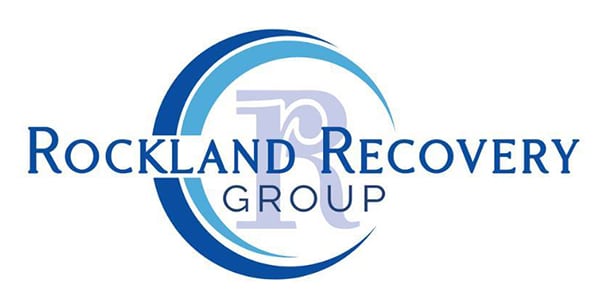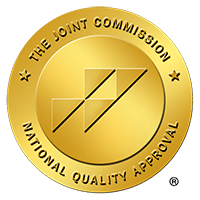Fentanyl addiction is one of the most serious issues we’re facing today. Illegal fentanyl use has a significant risk of overdose and is highly addictive. At Rockland Recovery, we offer dedicated fentanyl addiction rehab in Massachusetts that begins with fentanyl detox and then follows a specialized continuum of care to ensure safe and effective recovery from fentanyl addiction.
Jump to Section
What Makes Fentanyl Addiction Different
Fentanyl addiction is extremely dangerous. Legal fentanyl is a prescription medication used for the treatment of severe pain. It is often used after surgery or with patients who are experiencing intense pain with late-stage cancer. Fentanyl is 100 times more potent than morphine. It’s also 50 times more potent than heroin.
One thing that makes illegal fentanyl use so concerning is that it can become potentially fatal in a very small amount. Just 2 mg of fentanyl is considered a lethal dose. For comparison, 2 mg of fentanyl looks similar to about ten grains of table salt. The DEA reports that 42% of illegal fentanyl pills tested contained this potentially legal dose.
The extreme potency of fentanyl, combined with a high risk of overdose, underscores the urgency with which Rockland Recovery is committed to helping you or your loved one overcome this serious addiction. Our clinical staff holds the highest level of expertise in treating fentanyl addiction, with an approach that is personalized and holistic.
Risks of Fentanyl Abuse
Illegal fentanyl use includes a long list of risks, but legal prescription use of fentanyl can also lead to addiction if it is abused and not used properly. Fentanyl’s strength, especially in small doses, makes it one of the most dangerous drugs available today.
Illegal drugs can be mixed with fentanyl, either knowingly or unknowingly, to the person using them. Illegal drugs are not controlled in the manufacturing process, which means there’s no way of knowing if the dose of fentanyl crosses the threshold of a lethal dose. More than a quarter of a million people in the United States have died from fentanyl overdose since 2018.
The risks to life and health, along with the addiction potential of fentanyl, make it extremely dangerous. If you or someone you love is at risk of fentanyl addiction, Rockland Recovery strongly urges you to reach out to us directly at 888-299-4833. There is someone available to take your call 24/7.
We also suggest contacting the Substance Abuse and Mental Health Services Administration (SAMHSA) National Helpline at 1-800-662-HELP (4357). SAMHSA offers several other resources for those dealing with addiction and mental health issues, including an online treatment locator to help you find treatment available locally.

Get The Help You Need
If you’re looking for information on addiction treatment or mental health care, our team can help. Our admissions coordinators are available 24/7.
Fentanyl Addiction Detox and Rehab
Due to the nature of fentanyl addiction, detox is usually the first step on the road to recovery. Fentanyl detox is an inpatient treatment where the patient’s physical and mental health needs are closely monitored. During detox, medical professionals use medications and therapy to effectively manage withdrawal symptoms. This helps to reduce discomfort and risks associated with detox.
This controlled environment ensures that any potential complications are promptly addressed, providing a safer transition through the withdrawal process. Continuous support from healthcare providers also helps patients cope with the mental challenges of early recovery. Detox is essential because it prepares patients physically and mentally for the next steps in treatment.
After detox, patients typically enter either a 24-hour inpatient treatment or a partial hospitalization program (PHP), which is a highly structured outpatient treatment plan that requires a commitment of four to six hours, several days a week, with the duration and frequency of treatment continually being adapted to meet the individual’s needs.
PHP programs offer flexibility to return home in the evenings and seek treatment while still meeting personal and work-related obligations.
Medication-Assisted Treatment for Fentanyl Addiction
Medication-assisted treatment (MAT) for fentanyl addiction is available at Rockland Recovery. MAT is a specialized area of addiction treatment that uses FDA-approved medication to help relieve withdrawal symptoms, reduce cravings, and lower the risk of relapse. MAT is highly effective when treating opioid addiction, including fentanyl.
If you have questions about MAT for fentanyl addiction rehab in Massachusetts, don’t hesitate to reach out to our expert clinical team at 888-299-4833.
Fentanyl Addiction Treatment in Massachusetts
Fentanyl addiction rehab in Massachusetts begins at Rockland Recovery. We view each person as a unique individual who deserves to be treated with compassion and respect. We offer a comprehensive and evidence-based approach to treating fentanyl addiction to ensure everyone receives the care they need. Contact Rockland Recovery at 888-299-4833 and speak to one of our care coordinators today.





